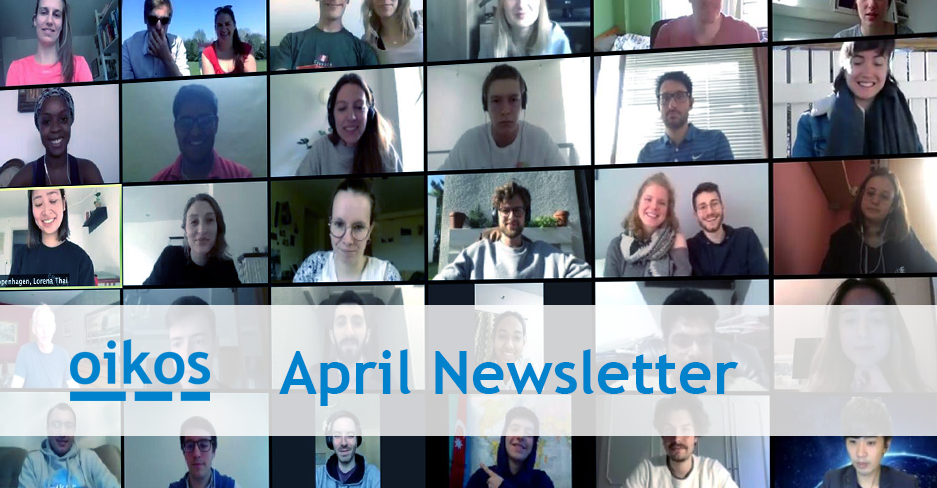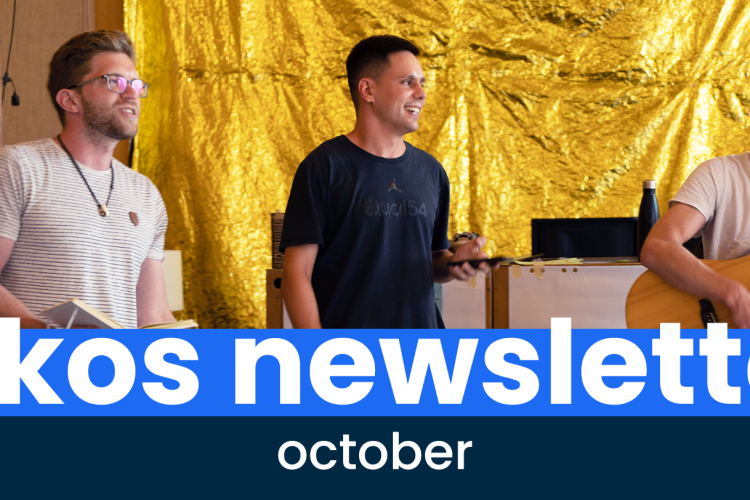
Welcome to the April edition of our newsletter!
This month was like no other before and it really showed the strength and determination of our community. After months of planning and last minute adaptation to the global circumstances, the teams behind international oikos projects delivered an array of events covering various topics.
From Curriculum Academy to Spring Meeting, from Chapter Days to Alumni Weekend – we made sure oikos Chapters, Members, Alumni as well as Academia and other individuals outside of the oikos Community could continue to make an impact towards a sustainable world of tomorrow regardless of the ongoing situation. Now, more than ever, the youth is in the position to shape the world towards sustainability through local and global actions.
[simple-button href=”https://mailchi.mp/9f7f146d3629/oikos-september-newsletter-4793272″ color=”lighterblue”]Read here[/simple-button] [simple-button href=”http://eepurl.com/gj4_Y1″ color=”lighterred”]Subscribe[/simple-button]



